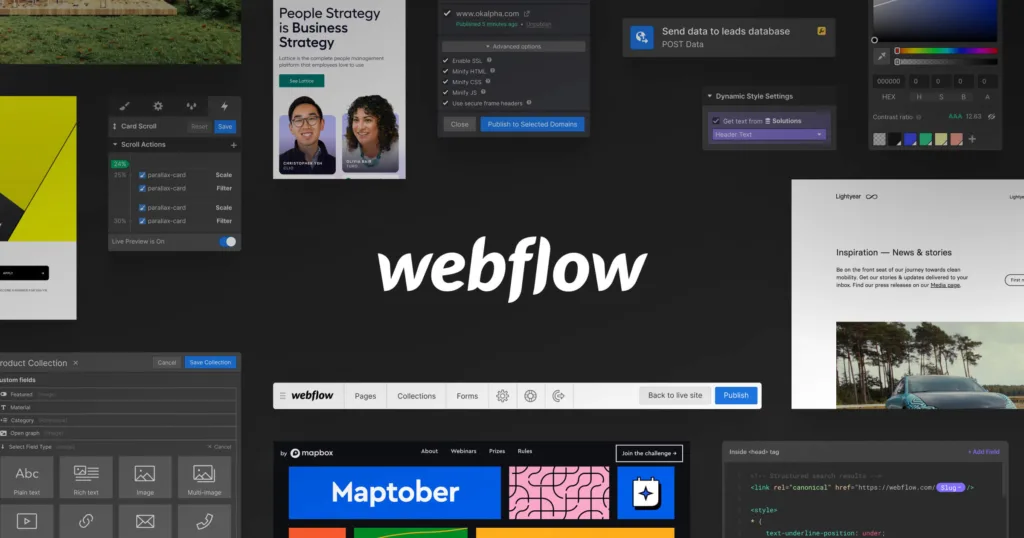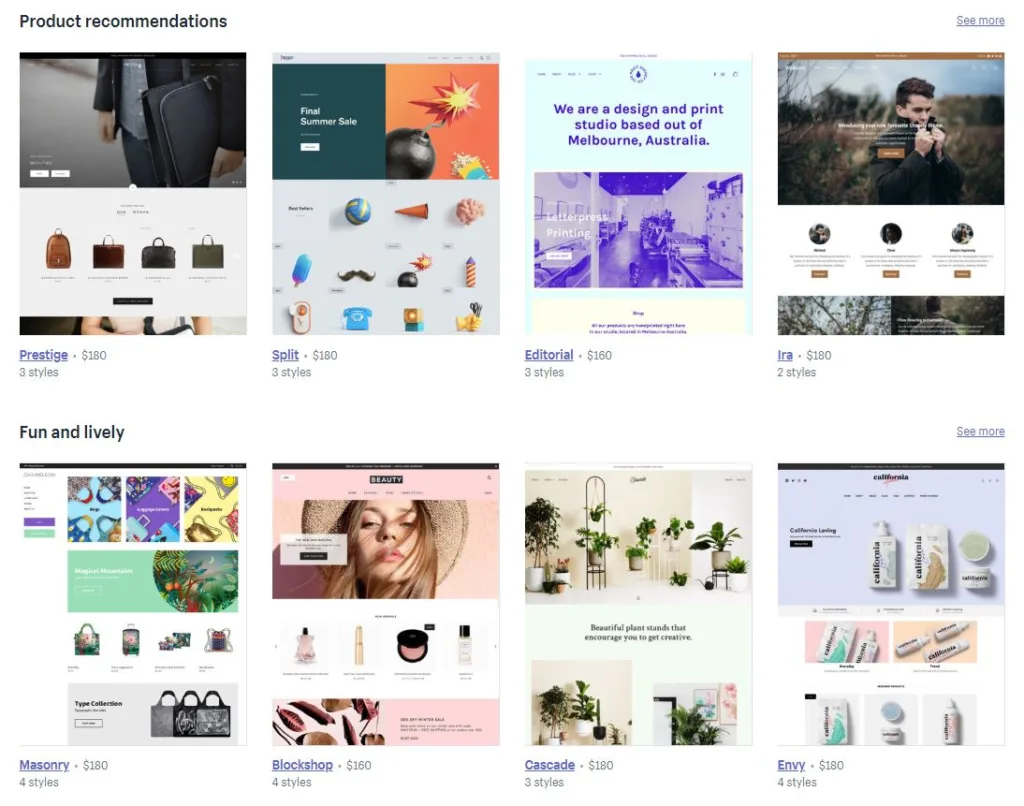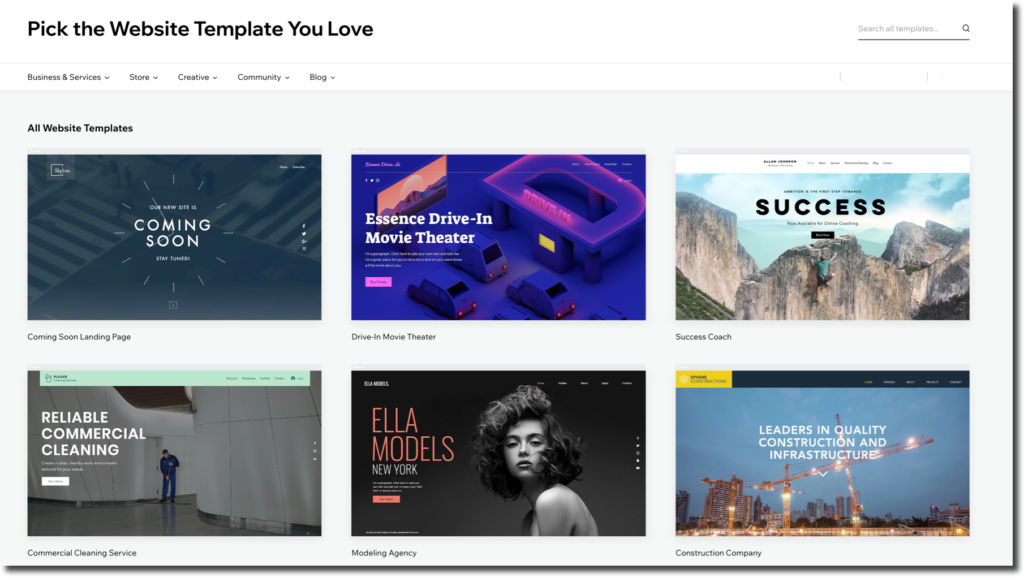Web design is a multi-disciplinary job, where you’d need knowledge in Content Writing, Image Editing, Animation, Wireframing, Prototyping, and of course Development of the Website. All of these disciplines need an understanding of various software and technologies. In this blog, we are discussing the software one would need for the design and development of a website.
If you’re new to web design, you probably want to know which web design software is worth the investment of your time, effort, and money. Choosing a great web design tool comes down to its functionality and purpose. There isn’t the best all-in-one solution. Also, depending on your goal, you may need to use more than one design software to achieve the best-designed website.
We recommend testing out several types of web design & development software to learn which one suits your work the most.
To help you find what you’re looking for, we’ve put together a list of the 55 best web design software tools for building amazing websites.
WordPress

WordPress is an open-source content management system that gives the developer full control over every aspect of website design. Over 40% of all websites run on WordPress. WordPress powers popular blogs, e-commerce stores, communities, and more.
Pros
- It is free. Although you have to pay for hosting your WordPress website, it is still completely free to use WordPress to build your site.
- Hundreds of free Themes and Plugins give you full control over your website
- There’s a huge community of users and developers who are contributing to the platform. That means if you ever have a question on any aspect of using the CMS, you’ll have plenty of people you can turn to for answers.
- WordPress lets you easily scale your website according to your needs and demands depending on the growth of your site in the future.
- Combined with the power of page builders like Elementor, WordPress will let you build complex customized sites fairly quickly
Cons
- Being an open-source platform, WordPress is attractive to potential hackers. To mitigate this risk, again, it is always good to be knowledgeable in choosing plugins and themes for your WordPress site. Check for reviews, and look out for the last plugin update to ensure that the plugins are updated by the developers.
- Certain themes contain a lot of unnecessary generic code. This can decrease the speed of the site and cause slow load times. Use a caching plugin.
- Installing updates is important to the health of your WordPress site, but can be a nuisance if not done thoughtfully.
Webflow

Webflow allows websites to be coded visually, managing all the code behind the scenes. This paves the way for design-led websites that are 100% flexible and can be rapidly built and updated. This design-led approach makes it possible for even less experienced developers to bring their imagination to life.
Pros
- Webflow closes the gap between visual design mocks and the final website by allowing the developer to “code visually”
- Webflow can also lead to faster development of a website since it allows for the prototyping and development to be done simultaneously.
- Webflow’s “Client billing” feature allows you to automatically bill your clients for web administration fees, plus add your desired profit margin. Your client then gets a unique link to complete their secure payment online. This is a super handy tool to navigate around the issue of late payments when using invoices.
Cons
- There is a bit of a steep learning curve when it comes to using Webflow, especially if you have never done any web development before. That said, they do have a growing library of video tutorials.
- Unlike open-source software like WordPress and Woocommerce, Webflow is not free. To publish your website, you have to choose among their various plans for individual creators to corporate companies. You don’t have to pay for hosting space, security, and cache memory separately though.
Shopify

There are many eCommerce platforms available to business owners but Shopify is the most scalable, feature-rich, and fastest-growing eCommerce platform that exists. Over one million eCommerce stores in 175 countries of all shapes and sizes trust the Shopify platform. From young new start-ups, all the way to enterprise brands such as Gym Shark, Deliveroo, Huel & Red Bull online stores are all powered by the platform.
Pros
- Shopify websites are easy to scale which means they will meet the needs of a business that is just starting out all the way up to a global brand fulfilling thousands of orders an hour.
- Shopify hosts all merchant stores on its own incredibly powerful servers, you never have to worry about your store crashing with a surge of customers again. With a 99.999% average uptime, Shopify has handled over 10,000 transactions per minute at its peak.
- Not dissimilar to Apple & Android, Shopify offers an app store with over 2,500 apps from trusted technology partners all with features designed to improve the experience of your store.
- Similar to WordPress, Shopify also has a range of free and premium templates to get started with quickly.
Cons
- Like Webflow, Shopify is not free but you can sign up for a 14-day free trial to test the waters. It does have a varied range of plans for all kinds of businesses.
- Compared to WordPress and Webflow, the extent of customization possible on Shopify is very limited as it used a liquid setup as opposed to the PHP setup used by the former two software.
- Shopify does not support email hosting. Therefore, you can only use the web hosting option to launch your online store.
Squarespace

Squarespace is an easy-to-use DIY website builder which is perfect for someone who’s looking to create their own website but does not want to learn website development for it. It has all the basic marketing functionality ready. Squarespace is best for personal websites and small portfolios.
Pros
- Squarespace offers more than 140 sophisticated themes that are optimized for tablets and phones. They seem to strive for the perfection of every little detail in their designs; fonts, sizes, images: everything just fits.
- If a blog is going to be one of your central website elements, Squarespace is a great choice. They have a feature-rich commenting feature, multi-author functionality, the ability to schedule posts, and AMP support.
Cons
- Squarespace templates score low ratings by Google’s Page Speed Tool, which could lead to a poor user experience on smartphones and possibly harm your search engine rankings.
- Squarespace is not suitable for larger websites that require a deep menu hierarchy. This also makes it almost impossible to create multilingual websites with Squarespace.
Wix

Wix is a free, user-friendly, website-building platform. Their intuitive technology and powerful built-in features give users the freedom to design professional websites with ease that look amazing on any device. Wix offers one of the most impressive email marketing services as compared to other website builders.
Pros
- One of the best attributes of Wix is its drag-and-drop interface, which makes it easy to add content and design your website without any coding experience. It comes with more than 500 customizable templates.
- Wix provides built-in SEO tools to help you improve your site’s ranking in search engine results pages (SERPs).
- There are more than 300 app integrations available, so you can add advanced features to your website with no coding knowledge.
Cons
- Google Analytics is not available on the free or Combo plans, so you won’t be able to track your website’s traffic.
- The free plan will also have Wix ads, and you won’t be able to have a custom domain name. Instead, your site will say mysite.wix.com.
- While Wix offers customer support 24/7 through email tickets and a callback service, response times aren’t always prompt. Support is one area where some customers feel Wix falls a bit short.
- Should you plan to migrate your site from Wix to WordPress in the future, you may face issues as the steps for this are tedious.
Our Recommendation
WordPress.
As a web design agency that has worked on numerous projects, our No 1 recommendation would be to develop your website on WordPress. For you to make an informed decision, these are the important factors to consider for a website project:
- Development Time
With plenty of WordPress themes available in the market, and with the right knowledge, you can develop a WordPress website within a day!
- Resources
With more than 50,000 WordPress plugins available in their repository, it’s highly likely that you will be able to find a plugin to fulfill your desired functionality.
- Ease of Customization
As of 2022, WordPress is used by more than 40% of all the websites on the internet. Hence, you are always likely to find a WordPress developer or a WordPress agency who is knowledgeable to customize your website according to your needs.
At Hunters Digital, we develop customized WordPress websites for all our clients. Having managed numerous small-scale to highly complex projects, our team is equipped with the experience and technical expertise to develop your dream website.
To discuss your project, click “insert contact us link” and our friendly consultants will reach out to you right away!

